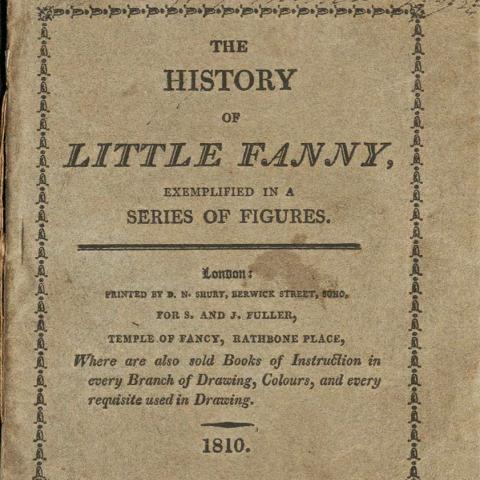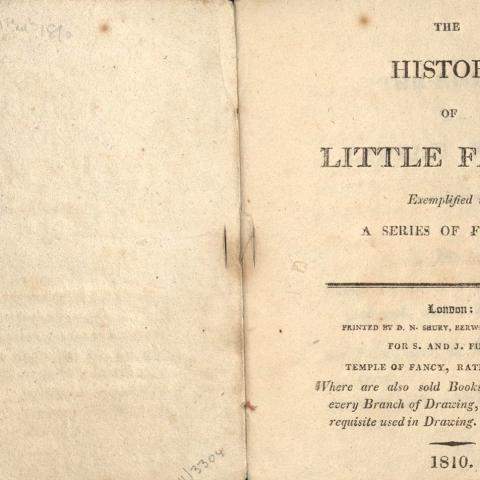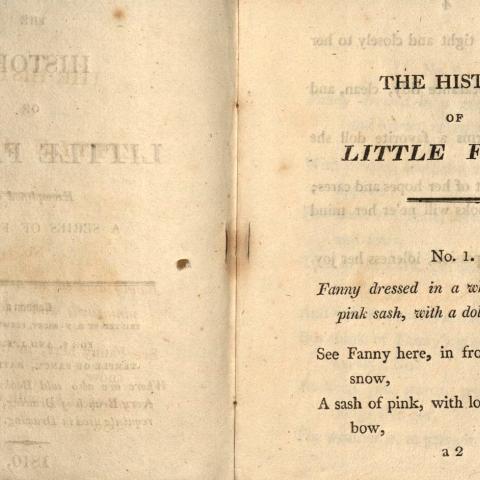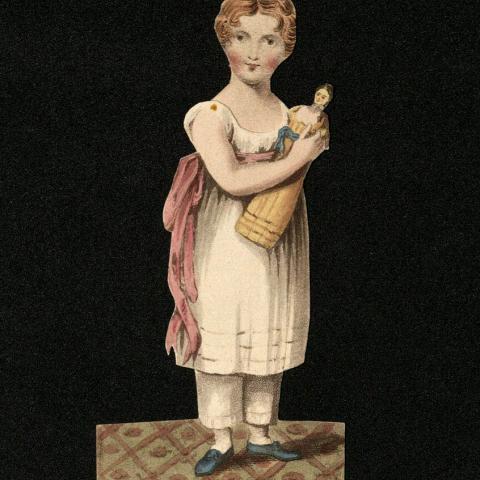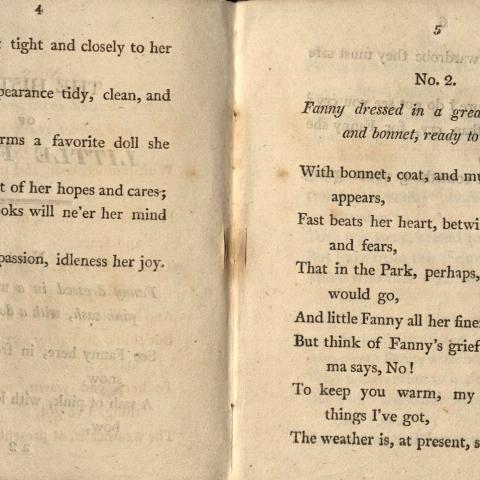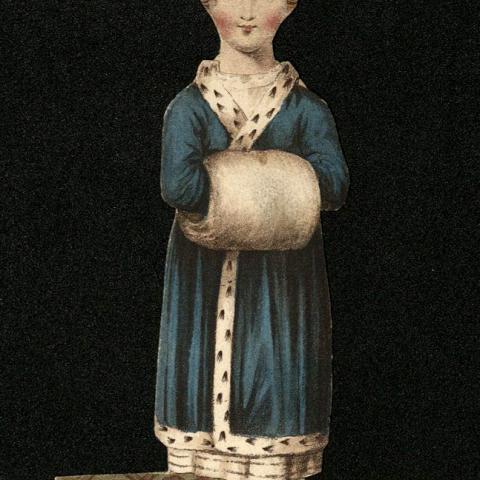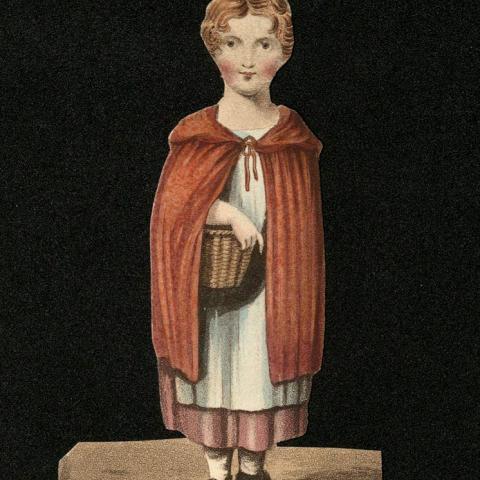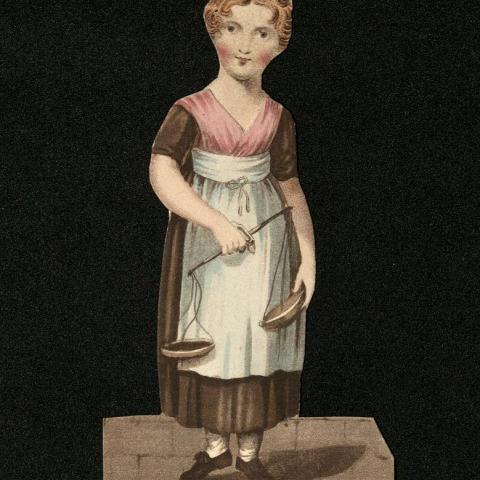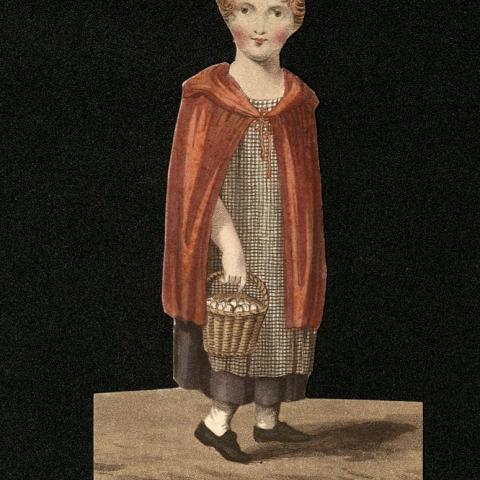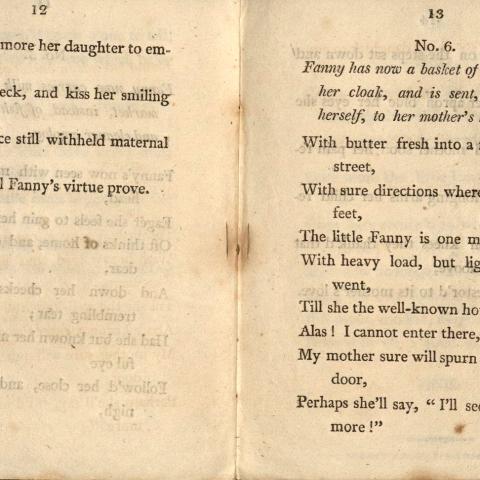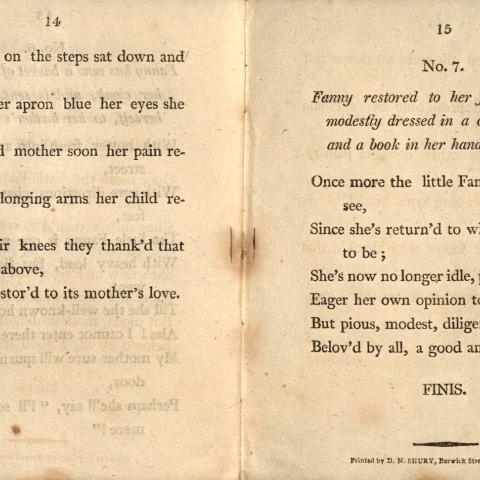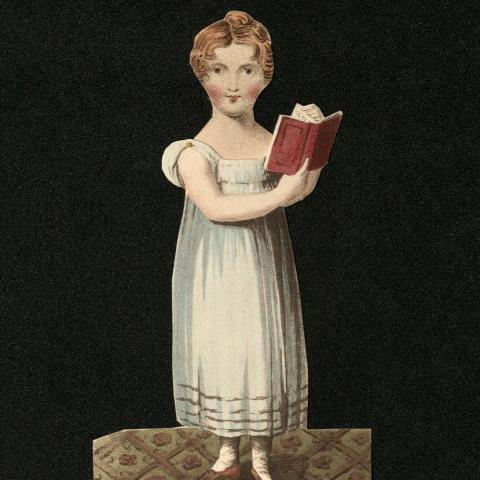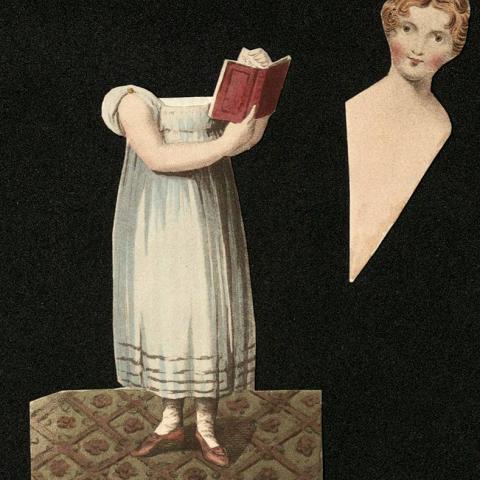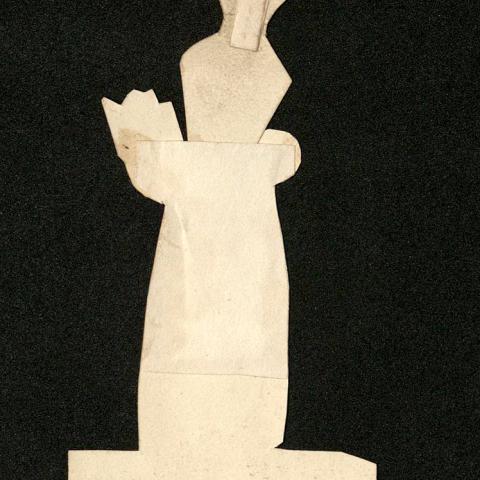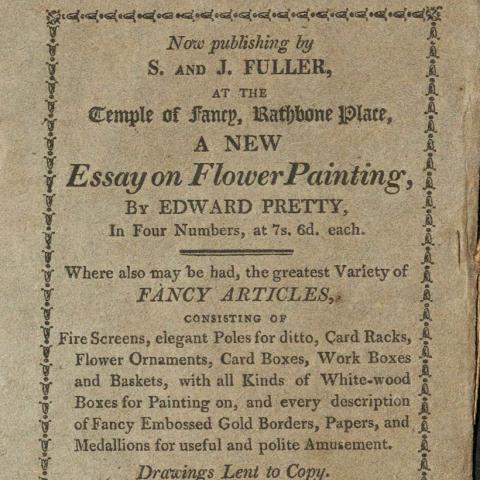The History of Little Fanny
October 15, 2024
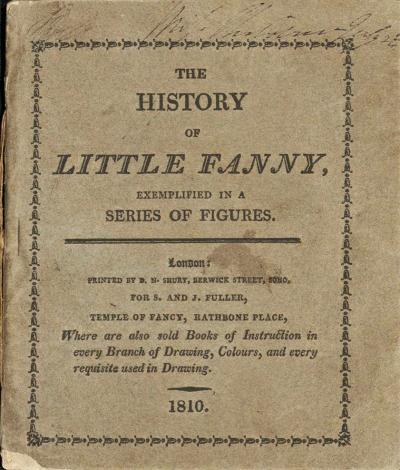 Special Collections & Archives holds many published works intended for children. One work in Special Collections & Archives, The History of Little Fanny, includes a short booklet accompanied by a series of colorful paper dolls child readers could use to follow Fanny's experiences throughout the story.
Special Collections & Archives holds many published works intended for children. One work in Special Collections & Archives, The History of Little Fanny, includes a short booklet accompanied by a series of colorful paper dolls child readers could use to follow Fanny's experiences throughout the story.
Published by S. and J. Fuller at the "Temple of Fancy" on Rathbone Place in London, the book was part of a series of similarly-themed stories that included moral messages to both entertain and educate child readers. Special Collections & Archives holds a copy of a later book in the series, Lauretta, the Little Savoyard, featured in a past blog post.
Like those that accompanied Lauretta's story, The History of Little Fanny's paper dolls are an early example of manufactured paper dolls. Rather than fitting paper outfits over a paper body, the back side of Fanny's outfits have a small pocket into which her head slides. Some of Fanny's ensembles include hats, which slide onto her head after it has been inserted into her outfit.
While Fanny's story is shorter than Lauretta's, it similarly serves to warn children about the dangers of disobeying their parents and running away from home. While Fanny begins the tale dressed in an attractive and respectable outfit, her "appearance tidy, clean, and neat," the author reveals that "play's her passion, idleness her joy." By the third part of the story, Fanny has dared to disobey her mother and strayed from home with "her wicked maid." She quickly discovers the horrors of poverty, becoming a "dirty beggar girl" who cries each night.
Determined to redeem herself, Fanny finds work as an errand girl and fish monger. She does well selling fish, and is soon given milk and eggs to sell at market, a "neater and cleaner employ." She often thinks of her mother, and cries at how foolish she was to abandon her home. One day Fanny's employer sends her to deliver a basket of butter to her mother's house. Fanny, convinced her mother will send her away, sits down on the front steps and bursts into tears. Her mother finds her there and welcomes her back home. The final section of the book describes Fanny's changed outlook on life: "no longer idle, proud, or vain....pious, modest, diligent, and mild, [b]elov'd by all, a good and happy child."
Image Gallery
Post tagged as: ephemera
Read more Peek in the Stacks blog entries